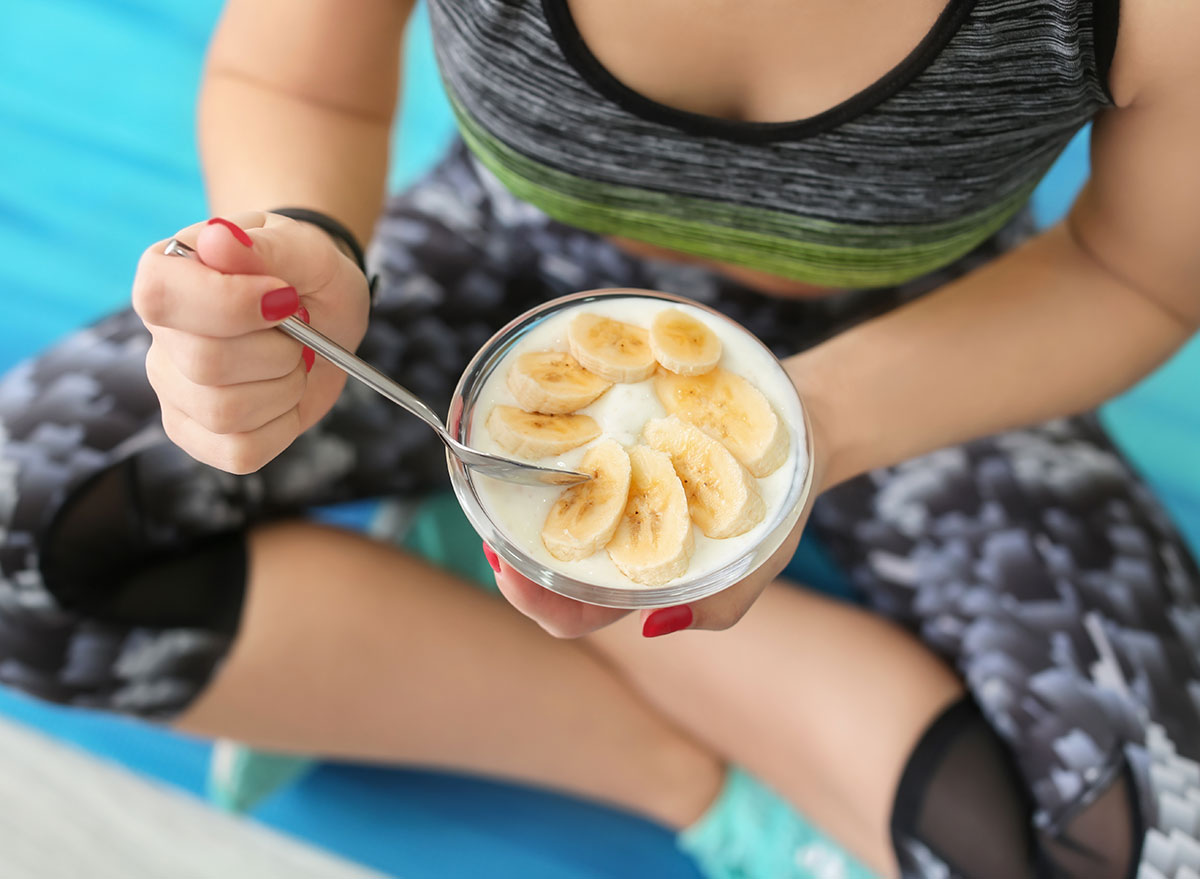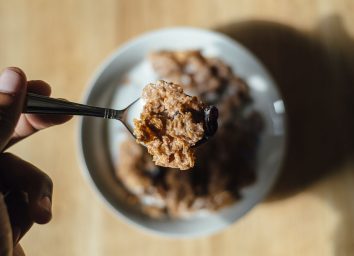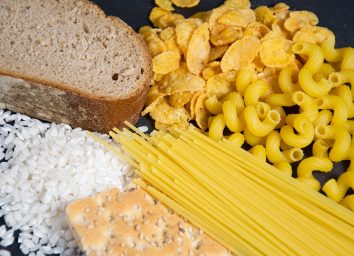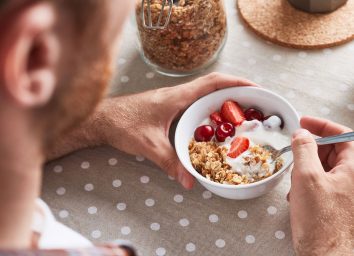21 Healthy Eating Habits That Help You Lose Weight
What if we told you that you could lose weight while continuing to eat all your favorite foods? You’d call us crazy, but we’d tell you it’s the easier way. Think about your last low carb diet; how long did it take until you caved and just ordered a pizza? We’d bet it was much sooner than you’d like to admit. And that’s because you’re trying to change what you eat rather than trying to adopt healthy eating habits.
You see, the reason that dropping those first few pounds is so difficult is because the majority of weight-loss strategies begin by eliminating foods from your diet. While that certainly makes sense, stacking up major diet change on top of major diet change is not only overwhelming, but it can also make you feel deprived and disheartened. As a result, you might lose weight initially, but it can just as easily come right back.
That’s where this list is different. Rather than changing what you eat, these tips focus on how you eat. That’s right, you can eat that pizza! Just make sure you’re sitting down at the dinner table, that it’s around 6:30, and that you’re taking breaks between bites to chat with your family. As you’ll soon find out, these minor adjustments to your late-night, loner pizza binges can actually pay off and keep off the pounds in the long run. Implement a few of these healthy eating habits, and you’ll lose 10 pounds in no time!
Don’t eat dinner after 9 p.m.
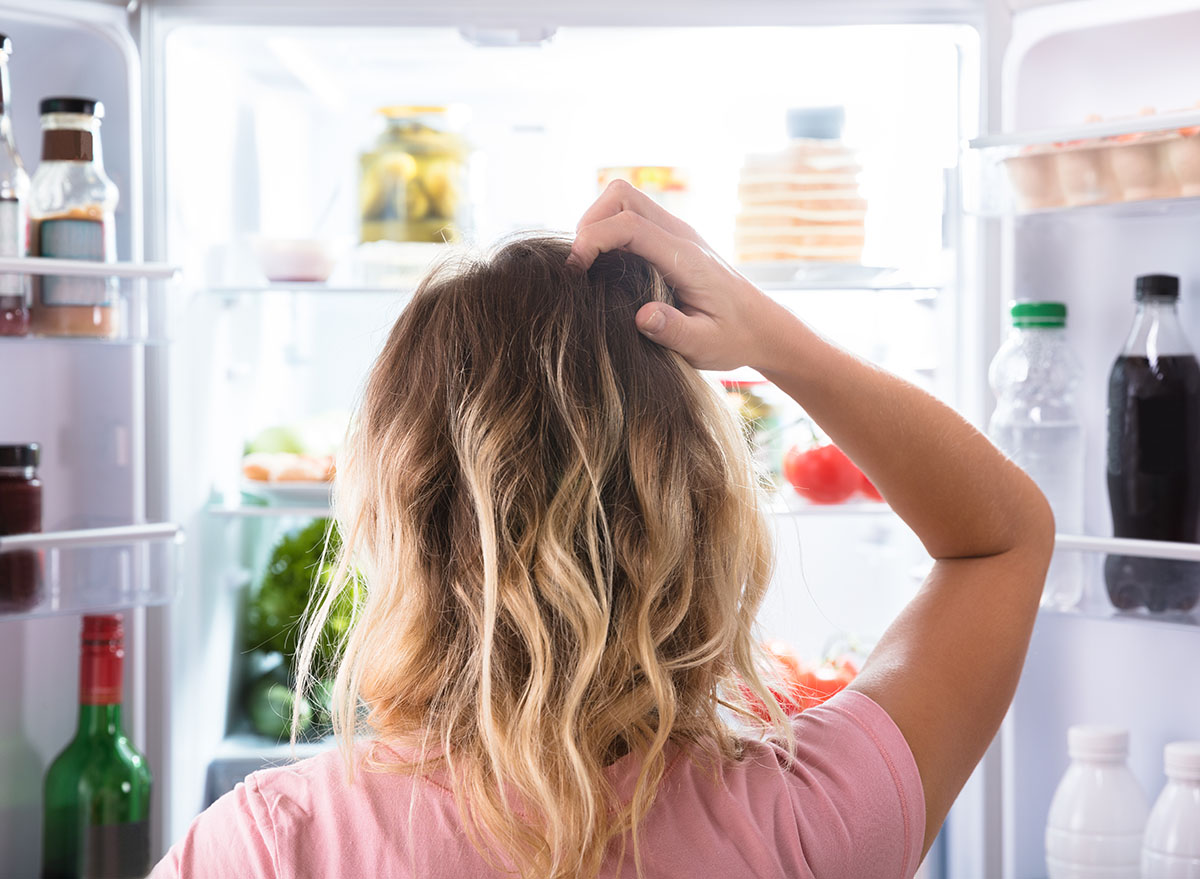
No, it’s not because your metabolism slows down after this time—that’s a common food myth. But it is true that late-night eaters are more likely to gain weight compared to those who take advantage of the early bird special, according to a study published in the journal Appetite. It’s not because they don’t burn those calories as rapidly; it’s because these night owls are more likely to binge eat (after starving themselves since lunch) and subsequently choose unhealthy foods high in sugar and fat to quickly put in their rumbling tummies. Not only will these high-energy foods pack on the pounds, but many of them can make it harder to fall asleep. And if you didn’t already know, getting enough sleep is one of the answers to how to lose 10 pounds.
Reward and comfort yourself without food.

Setting goals—and reaching them—is a cornerstone of an effective weight-loss plan. And while, yes, even a one-pound loss is something to celebrate, that doesn’t mean indulging in your favorite comfort food is how you should reward yourself. Instead, make an effort to congratulate yourself in non-food ways, like treating yourself to a new workout tank, splurging on a fitness class, or going to see a movie with your friends. Replacing the connection between food and emotions will make it easier to eat better in the future.
Eliminate distractions while eating.

It’s time to put an end to TV dinners once and for all. According to a Food Quality and Preference study, people who listened to music with headphones while eating consumed significantly more of the exact same food compared to those who weren’t jamming out.
Experts have explained that keeping your mind busy while eating can block certain satiety cues from alerting your brain that you’ve eaten your fill. So, while you’re working to slim down, follow one of our best weight loss tips and press pause on your TV remote or Spotify playlist during your meals.
Sit down.

We’re all for walking meetings, just as long as they’re not lunch meetings. That’s because studies have found that people who stand while munching end up scarfing down 30 percent more at their next meal compared to those who sit. Researchers speculate that it’s because our body subconsciously dismisses a standing meal as a “false meal,” which causes us to eat more later in the day.
Cook at least 51% of your meals at home.
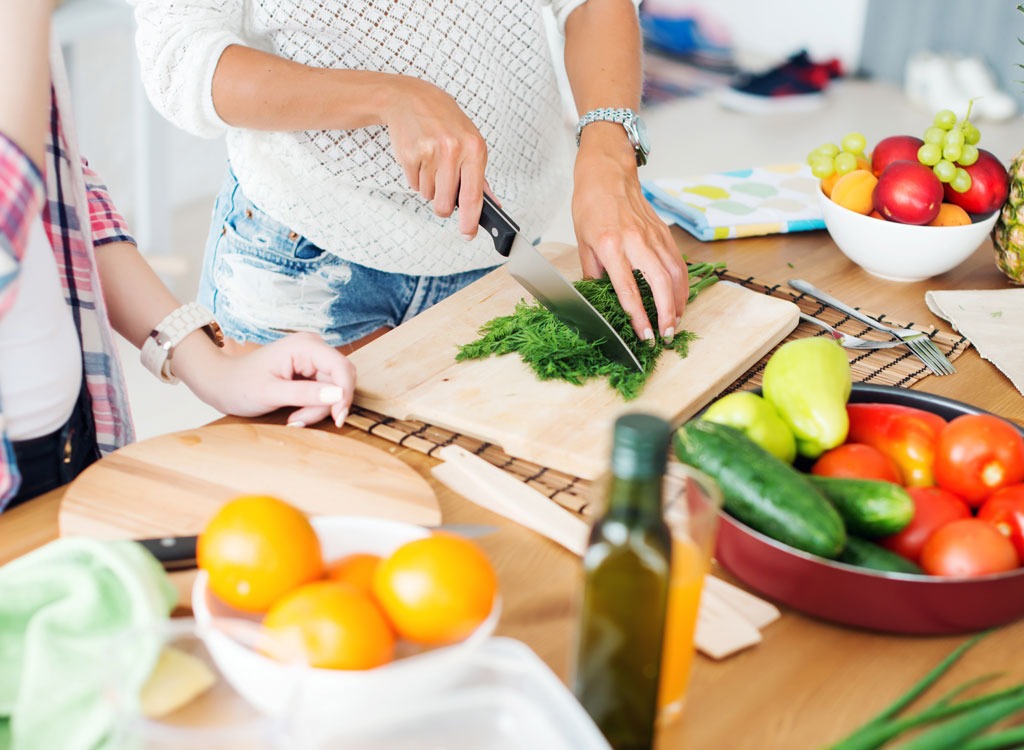
It’s a time saver in the moment, but eating out for most of your meals can ultimately delay your weight loss progress. Restaurant food is high in calories and loaded with salt, which research has found can release the addiction-inducing hormone dopamine. When you add the healthy eating habit of cooking the majority of your own meals and snacks at home, you put the calorie-cutting power in your own hands. In fact, Johns Hopkins researchers found that home cooks will consume nearly 200 fewer calories than people who eat out more often. These healthy breakfast ideas are an easy place to start.
Order lunch ahead of time.

If you do have to order lunch, you can do so in a way that will further your weight loss goals. Look up nutrition information ahead of time, keep extras to a minimum, and order in the morning. Wait, what? You heard right. A study conducted by University of Pennsylvania and Carnegie Mellon University researchers found that when people placed a lunch order more than an hour before eating, dieters chose meals with an average of 109 fewer calories than those who ordered immediately before lunch (when their rumbling stomach may have clouded their judgment).
Keep your bedroom for sleeping, not eating.

An analysis published in the journal Sleep Medicine found that keeping a television in the bedroom was associated with shorter total sleep time. It’s not just TV that will prevent you from getting a restorative night’s sleep (which, if you didn’t already know, is one of the essential rules for weight loss); it’s also noshing in bed. When you reserve your bedroom for snoozing, you can train your brain and body to associate slipping under the covers with sleep—making it much easier to catch some ZZZ’s.
Eat, rather than drink, your calories.
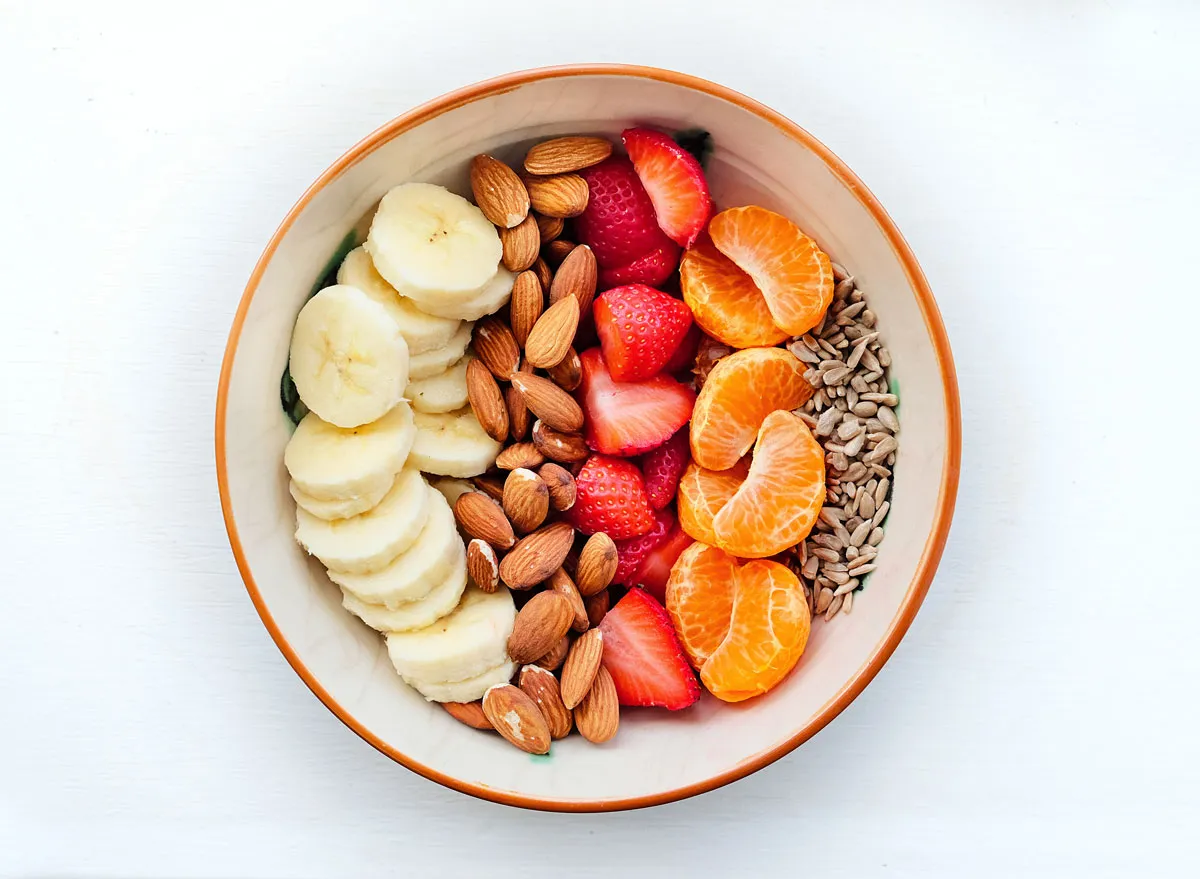
Yes, that healthy eating habit goes for everything from sodas and alcohol to juice cleanses and bottled teas. That’s because beverages often lack healthy fats and fiber: two satiating nutrients that keep hunger pangs at bay. A study published in the American Journal of Clinical Nutrition found that participants ended up drinking more (and thus consumed a greater number of calories) until they felt satisfied, compared to when they ate solid food.
There are a number of factors at play when it comes to satiety, and experts believe that both the sound and the physical act of chewing helps monitor your consumption; they think chewing will even increase satiety better than slurping. So, take a cue from a recent study published in the same journal—which found that thick smoothies made people feel fuller than a thin drink with the same amount of calories—by adding in a generous scoop of Greek yogurt and a sprinkling of crunchy nuts to your protein shakes in the mornings.
Clean out your pantry.

Before you can come “in with the new,” you have to go “out with the old!” Because researchers have found that people will reach for whichever food is closer—regardless of whether it’s an apple or popcorn—it would benefit you to get rid of any snacks that could derail your slim-down efforts. Don’t believe us? Well, how about this: a study by Eat This, Not That! magazine advisor Brian Wansink, director of the Cornell Food and Brand Lab, found that women who have soda sitting on their countertops weigh an average of 26 pounds more, cereal an additional 20 pounds, and cookies about 8 pounds more compared to those with clean countertops. The lesson is clear: Throw your junk food in the junk bin, stock up on some healthy pantry items, and lose weight.
Set yourself up for success.
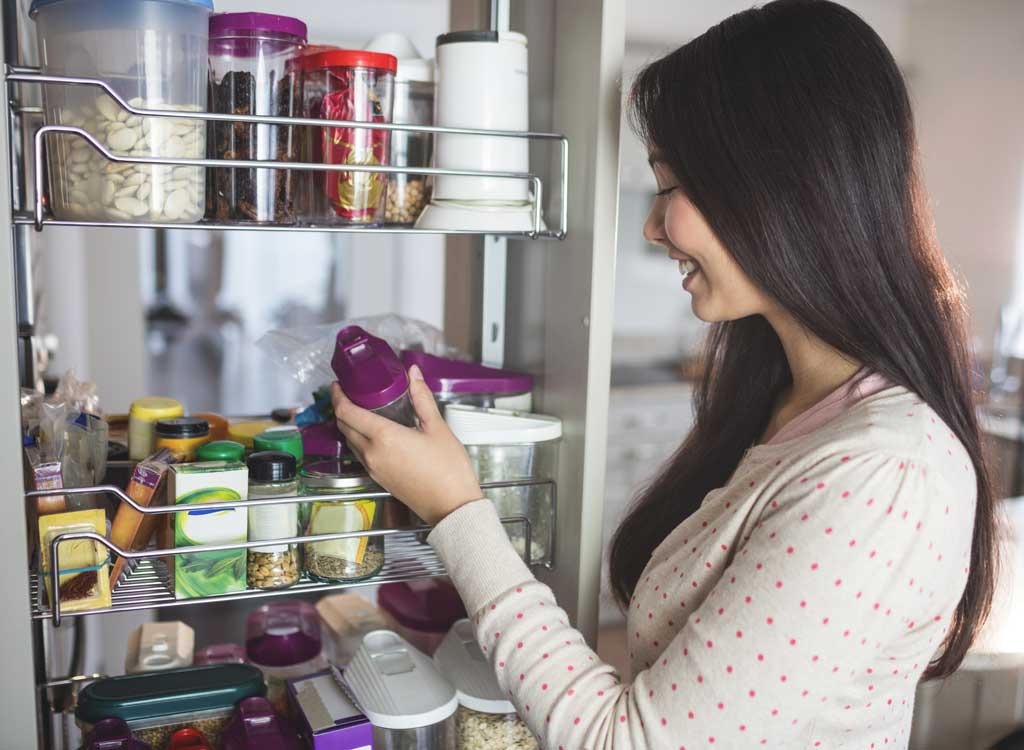
Keeping healthy snacks on hand at all times makes it hard to fail. Cut up veggies and store them in the fridge to dip into hummus, keep fruit in a bowl on a counter near your keys, and stock up on an assortment of nuts. Looking for more ideas? Check out these high protein snacks.
Put your fork down after each bite.
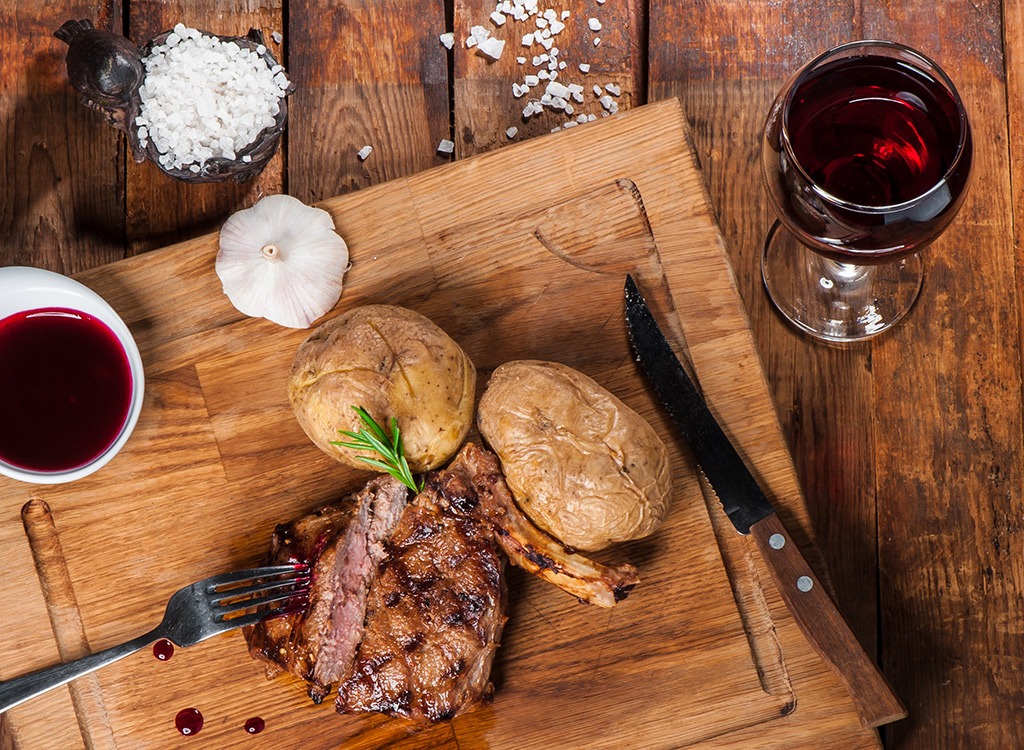
It takes about 20 minutes for your stomach to pass on the message to your brain that you’re full. That’s part of the reason why fast food is so bad for you. It’s not just that it’s full of empty calories and artificial additives; it’s that you can eat it faster than it takes your body to realize you’ve had enough! To help you stop eating when you start to feel full, make a point of pacing yourself through your meal. Put your fork down after each bite, chew thoroughly, and even stop to chat with a friend. You’ll find that you’ll begin to feel full as you eat more slowly instead of feeling like you’re about to pop once you’re done.
Ask yourself if you’re really hungry.
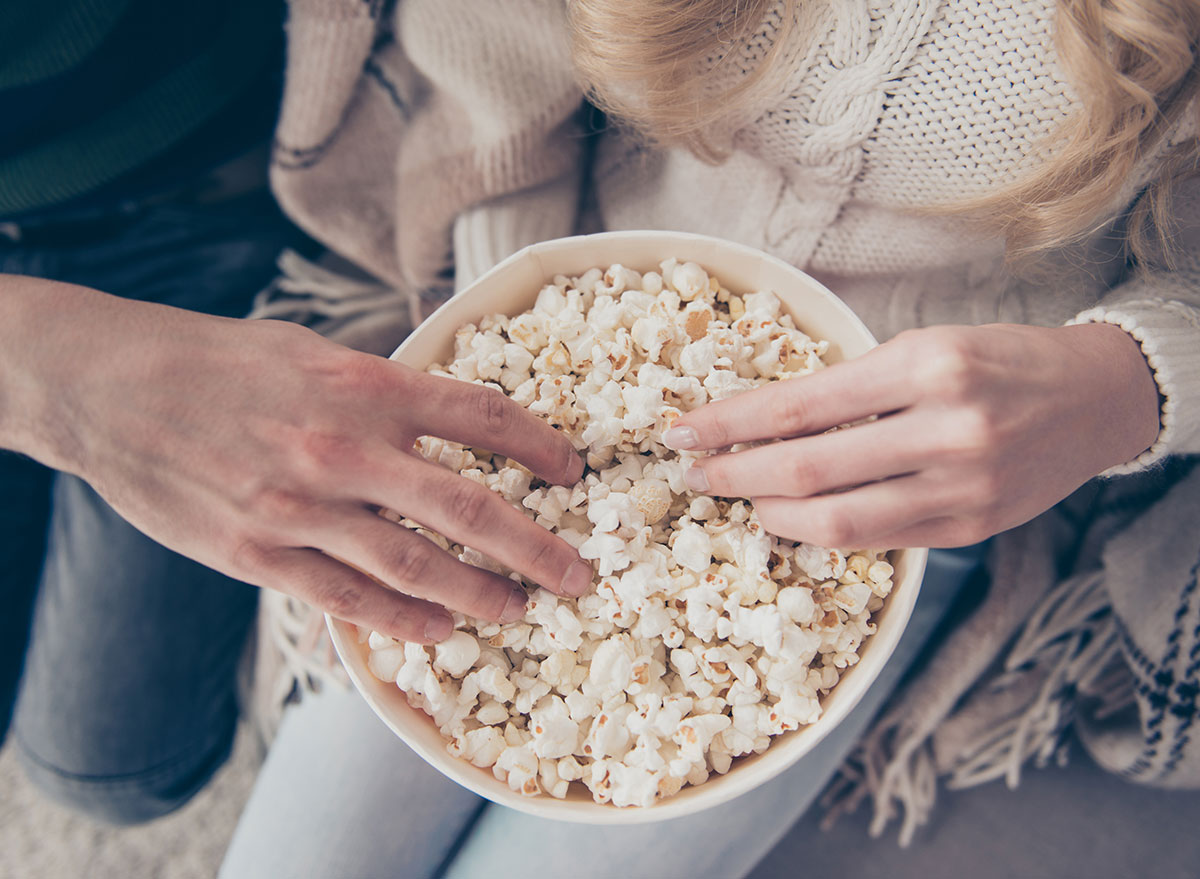
Just because you’re going to see a movie doesn’t mean you need to buy an extra large popcorn. The same goes for that leftover food from the morning meeting that’s been placed in the breakroom. Just because it’s free—or because you’re bored—doesn’t mean you should eat. Whenever you see food that’s tempting you, ask yourself, “Am I actually hungry?” Test yourself by knocking back a cup of water and waiting 10 minutes. Around 60 percent of the time, people inappropriately respond to thirst by eating instead of drinking, according to a Physiology & Behavior study. It’s one of the reasons you’re always hungry.
Before eating a meal or snack, see if it has P.F.F.
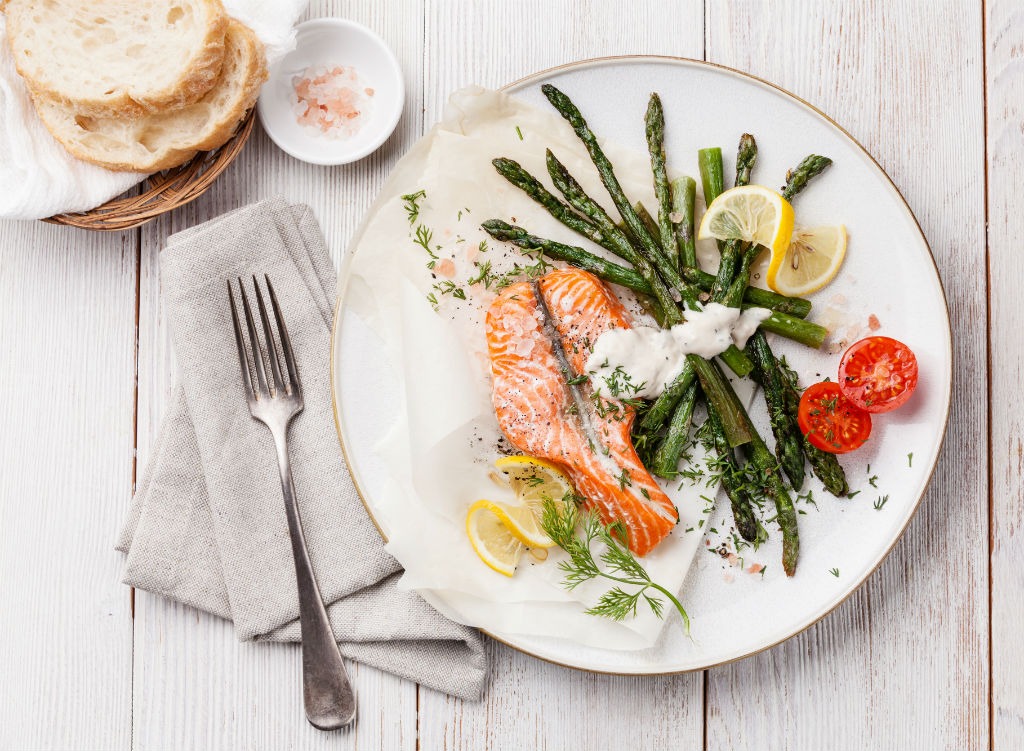
When you start thinking of food as fuel, you’ll begin to realize how unnecessary a lot of the snacks you’re eating are. That leads us to the question we know you’re asking yourself, “What’s P.F.F.?” It’s the key mantra of the Zero Belly Diet by Dave Zinczenko (over 500+ test panelists lost 16 pounds in 14 days!), creator of Eat This, Not That! Before every meal, ask yourself, “Where’s my protein, where’s my fiber, and where are my healthy fats?” These three slow-digesting macronutrients will extend levels of satiety so you can get the most out of every meal, which will ultimately help to curb overeating.
Always carry healthy snacks and water.
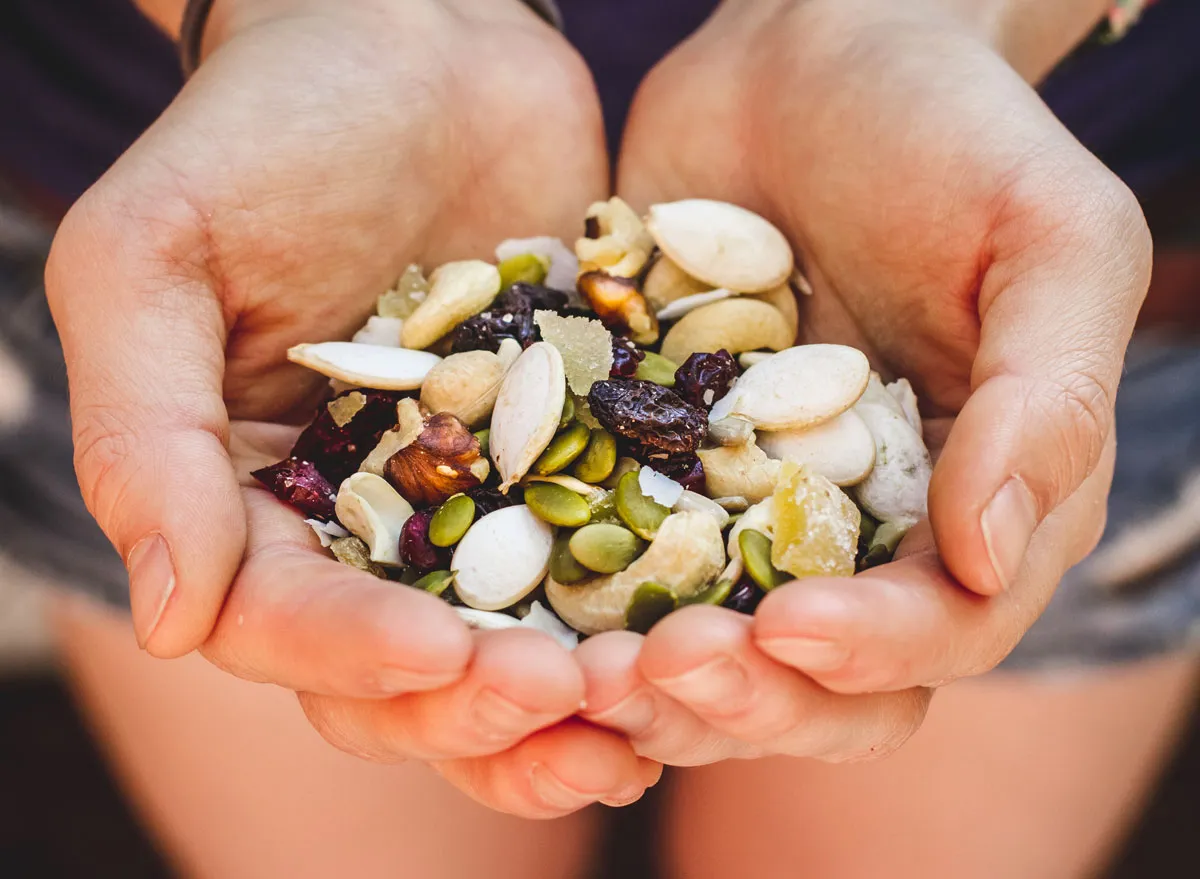
The Boy and Girl Scouts were onto something with their “Always Be Prepared” motto. When you carry satisfying snacks and thirst- (and hunger-) quenching water, you help your body maintain stable blood-sugar levels. That translates to keeping your stomach full, which prevents your body from storing excess fat or indulging in high-energy foods after what your body perceives to be “life-threatening” starvation.
Follow eating rituals.
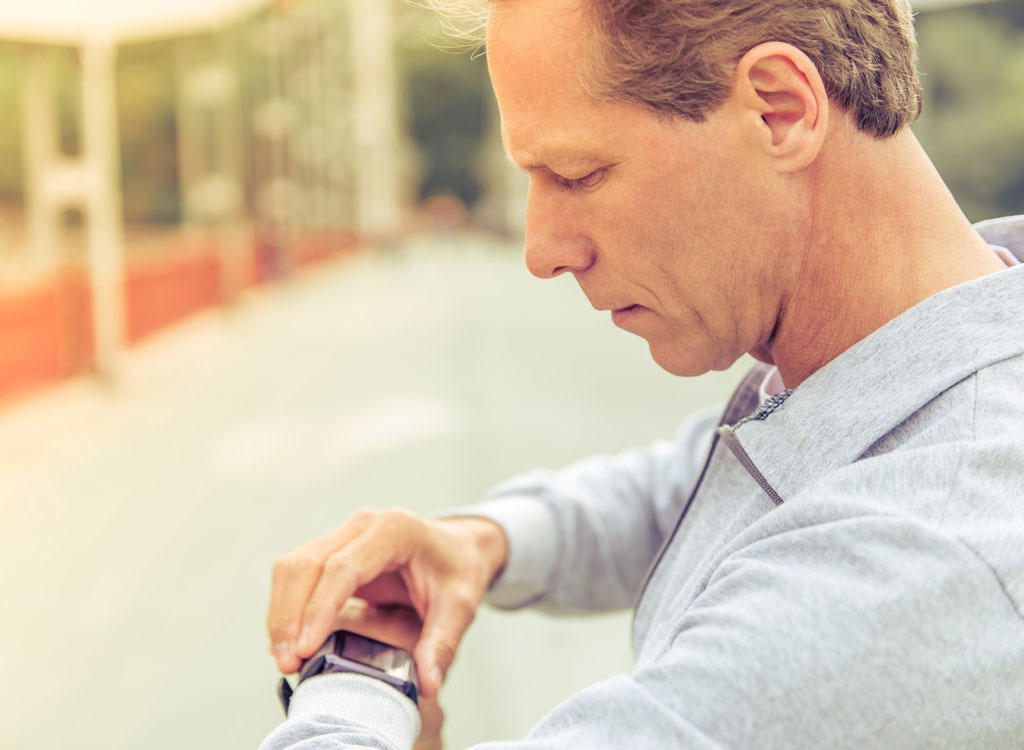
People who live in a non-patterned environment are more likely to fall prey to bad eating habits. What does that mean exactly? Think: if you have to fly to another state every week for work, or your kids’ sports schedules fluctuate daily, it can be hard to stick to a restrictive daily schedule. Instead of planning what every day looks like, experts suggest establishing eating rituals. For example, eat dinner with your family at the kitchen table (rather than in front of the T.V.) and enjoy lunch in the park (not your desk).
Come up with a meal plan.

We’ve all been there. You come home too late and you’re way too exhausted to deal with dinner. Nine times out of ten, the solution is either ordering in or heating up a frozen pizza. The problems with those solutions are that the average take-out meal can climb to well over 1,000 calories and frozen pizza isn’t the well-balanced diet meal of your dreams. That’s why it’s important to come up with a meal plan. You can even let us do it! Our 1-week healthy meal plan) shows you just how easy it is to prep in advance. That way, you can always have ready-to-eat healthy foods to turn to when time is tight, hunger is high, and your energy is low.
Don’t binge on ‘zero calorie’ beverages.

Sorry, diet-soda lovers. Continuing to feed your desire for sweet treats by substituting them with zero-calorie sweeteners isn’t doing your weight loss journey any favors. A 2016 study published in the journal Cell Metabolism found that mice could no longer properly connect sweetness to energy density after chronic consumption of artificial sweeteners, particularly sucralose. Translation: Your body normally associates the sweet taste of sugar with energy (i.e. calories), but because artificial sweeteners taste sweet, but offer no energy, they cause your brain to recalibrate its association between sweetness and energy.
As a result, the mice consumed 30 percent more calories when they were subsequently given naturally-sweetened food. It gets worse. The University of Sydney researchers also found that artificial sweeteners promoted hyperactivity, insomnia, and decreased sleep quality. Not to mention, other studies have shown that artificial sweeteners can decrease your gut’s ability to fend of weight-inducing inflammation. Wean off the bubbly soda by sipping on seltzer, detox water, or green tea.
Make a habit of starting with a salad.
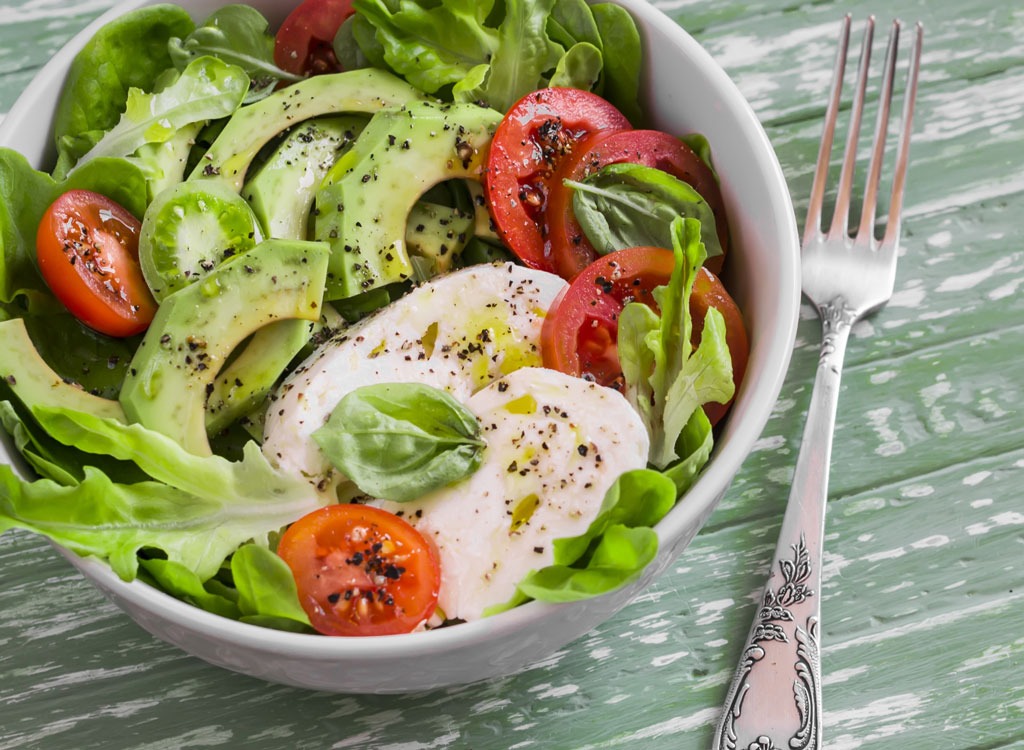
Who knew you can fend off calories with more calories? Cornell University researchers found that pre-loading your meals with salads can actually help your body keep its blood glucose levels more even-keeled. That means you’ll not only stay fuller longer, but you’ll also save your body from an inflammation-inducing spike in blood sugar.
Order first at restaurants.
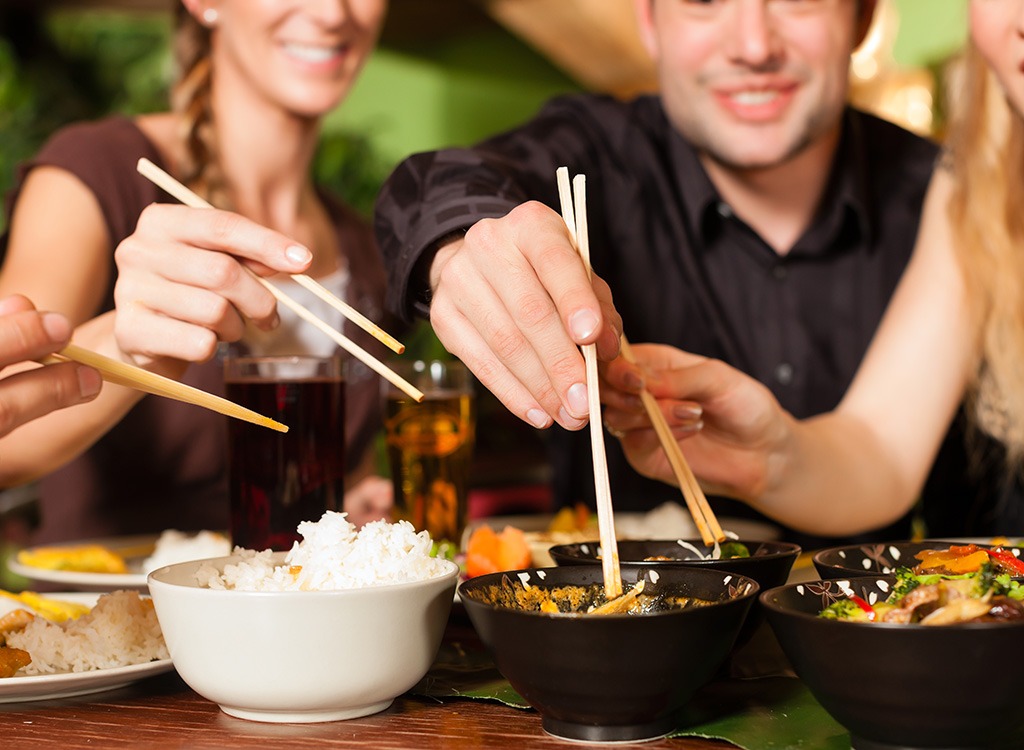
Eating healthy when dining out with a group of friends is easy as long as you order first! A University of Illinois study found that people will tend to order similarly when in a group—especially when they give their order out loud. The researchers attribute the results to the fact that people are happier making similar choices as their peers. In other words, if you tend to be indecisive and rely on hearing what other people are getting, check out the menu at home, decide on a dish, and ask the waiter if you can order first. It’s how to eat healthy at restaurants!
Ask for dressings and sauces on the side.
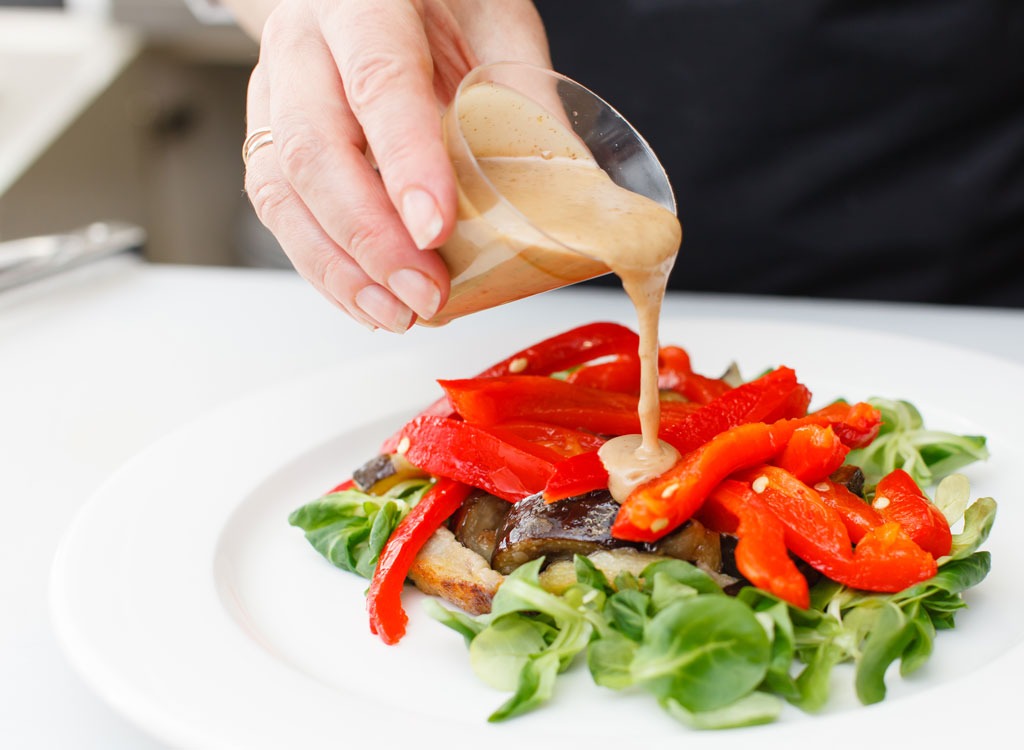
If you let the restaurant dress your salad for you, you’ll likely get at least four tablespoons of a calorie-laden vinaigrette that suffocates your once-nutritious vegetables! Depending on your dressing of choice, that can set you back anywhere from 300 to 400 calories. Instead, always ask for the dressing on the side (even when it comes to buffalo wings) and only use half of it to save more than 150 calories. But make sure you still use some; adding fat to your salad will help your body absorb the fat-soluble, health-promoting nutrients.
Keep yourself accountable.

There’s nothing worse than being surrounded by people gorging themselves on freshly baked cookies when you’re on a diet. We get it. It’s hard going at it alone. But there’s a simple solution: surround yourself with supportive people. Because some of your friends and family may have never struggled through weight loss before, they might not take your diet seriously at first.
That’s why it’s important that you explain your mission to them and ask for their support. This way, you’ll have a group of people who can not only keep you accountable for your actions but can also give you words of encouragement when times get tough. Better yet, find yourself a diet buddy! A study published in the Journal of Consulting and Clinical Psychology found that dieters who had a weight-loss partner lost significantly more belly fat compared to those who tried to slim down alone.
For more healthy eating tips, be sure to sign up for our newsletter.
